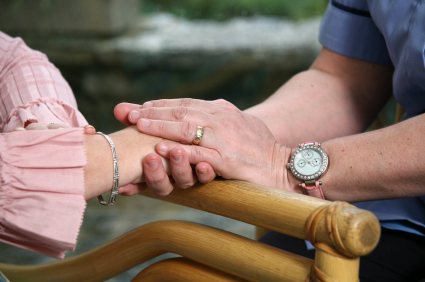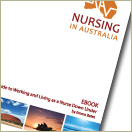|
Hospice Nursing - Caring for the Terminally IllHospice nursing involves specialize in the care for terminally ill patients. This type of care usually takes place in either hospice centers or in the residence of the patient. The main difference between the care administered by hospice nurses and other types of nursing care is that hospice nursing involves palliative medical care. This means that the treatment is designed to reduce the pain and symptoms rather than attempting to cure the illness or disease.
Hospice Nurse Responsibilities Hospice nurses spend several hours a day with their patients, assessing their conditions and providing direct care often through an advising physician. The responsibilities of a hospice nurse involve:
There are some other responsibilities hospice nurses have to take on that most other types of nurses typically don't have to deal with. These include educating the patient's family about the terminal disease and dying process, and providing emotional support to the patient and the family in trying times. Patience, compassion and fortitude are all vital qualities for a hospice nurse. Emotionally Demanding It goes without saying that hospice nursing care is probably the most difficult on a mental level in the nursing profession, and it is certainly not for everyone. Knowing that their patients will die at some point is emotionally difficult for hospice nurses to deal with, but it is they who have to provide support and stability to their patients and their families. They must adequately prepare them on how to deal with death as the end nears, and allow their patients to live the end of their lives in dignity and peace. How to Become a Hospice Nurse First, some nursing career paths are only open to these with nursing degrees, and hospice care is one of them. Therefore you must having either a bachelor's or master's degree in nursing from an accredited nursing program. You must also be a registered nurse (RN) and certified as a hospice worker by your state health department. Next you will need two years experience as a full-time RN in a hospice environment, and finally you need to pass a hospice exam which is given by the National Board for the Certification of Hospice Nurses. Hospice Nursing Career Outlook and Earning Potential The average salary for RNs working in home health care facilities was just under $62,000 per year, which is slightly above that for nurses working in nursing care facilities. The U.S. Department of Labor expects the field of hospice care to increase in demand more so than the average profession as care for the terminally ill and elderly is expected to occur more in private residences than in hospitals and nursing homes. Those who have what it takes to work in a hospice nursing environment do find this field rewarding, and it looks to be a financially stable field especially in these current economic times. Other Career Paths to Consider: Once you have determined your career direction:
|



